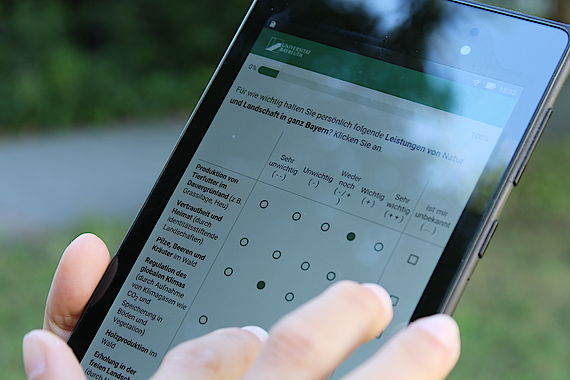Sustainable use of alpine and pre-alpine grassland soils in a changing climate
Grassland ecosystems are widely spread in the alps and the foothills of the alps of southern Germany and cover an area of more than one million hectares. From an economical point of view, grasslands are precious as they provide fodder for dairy and cattle farming. In addition to their economic value, they fulfill important ecosystem functions such as the storage of carbon and nitrogen, water retention, protection against erosion and biodiviersity. However, changes in climate, land use and grassland managenent jeopardize the multiple functions provided by grasslands.
The aim of the SUSALPS project is to improve our knowledge on the effects of current and future climate and management on ecosystem functions performed by grasslands. In the process, the general framework of the socio-economy of the specific geographic region will be considered. Based on this improved knowledge, sustainable management options for grasslands in the alps and the foothills of the alps will be developed. These management options will be especially designed to support the climate protection function of grassland soils.






